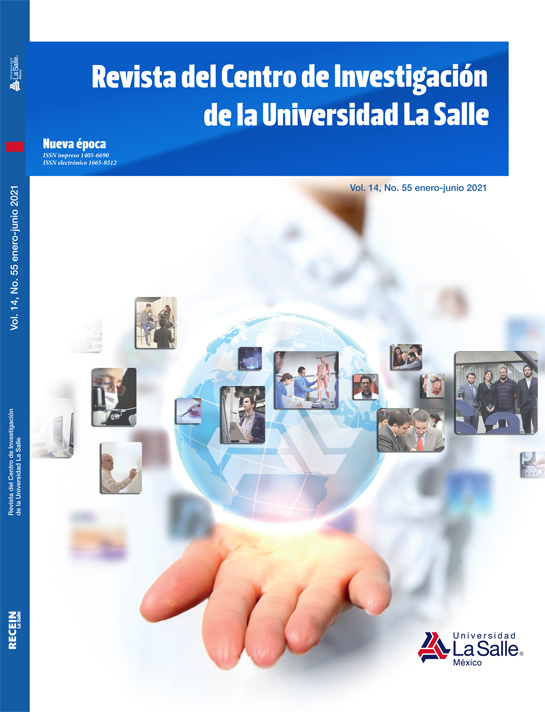The Modern Money Theory in the Time of COVID-19. 1253
Main Article Content
Resumen
This paper critically analyzes the use of Modern Money Theory as a key policy to the economic recovery post covid-19. The gradual evolution of this health crisis and its economic impacts inevitably pushes fiscal and monetary policy in a new direction. In addition to price stability, monetary authorities place a priority for reducing the rate of unemployment for economic and social outcomes.
In order to stabilize the economy in this unprecedented time, policy makers now face new economics challenges in term of response to the current crisis. Modern Money Theory (MMT) has become relevant in the current crisis, where money supply matters particularly for sustaining full employment as an important condition in the political economy of money. This consideration allowing us to first question the MMT logic and its effectiveness in term of interventionist state that stabilize the economy.
The core theoretical concept of MMT is that government can finance social public needs with money financed deficits, specifically when the economy is away from the full employment.
Descargas
Detalles del artículo

Esta obra está bajo licencia internacional Creative Commons Reconocimiento-NoComercial-CompartirIgual 4.0. Esta revista se encuentra bajo la licencia de Creative Commons, por tanto, los autores, al postular su artículo, lo adhieren a dicha licencia.
El autor puede disponer de su artículo para su archivo en repositorios institucionales o en páginas web personales, con la referencia y agradecimientos a la fuente donde se ha publicado.
Citas
Barone, R. (May 24, 2020). If The Fed Is Worrying, Shouldn’t You Worry Too?. Forbes. https://www.forbes.com/sites/greatspeculations/2020/05/24/if-the-fed-is-worrying-shouldnt-you-worry-too/#5ca2ea271f72
Desilus, B. (2020). How the COVID-19 will redefine the Global Supply Chains. Revista Latinoamericana de Investigación Social, 3(1), 5-8.
Federal Reserve Bank of Chicago. (1998). Modern Money Mechanics. This publication originally was written by Dorothy M. Nichols in May 1961. The June 1992 revision was prepared by Anne Marie L. Gonczy. Chicago, IL.
Federal Reserve. Board of Governors of Federal Reserve System (June, 16, 2020). Federal Reserve Board expands its Main Street Lending Program to allow more small and medium-sized businesses to be able to receive support. https://www.federalreserve.gov/newsevents/pressreleases/monetary20200608a.htm
Georgieva, K. (2020). Beyond the Crisis. Finance & development, 57(2), 10-11. https://www.imf.org/external/pubs/ft/fandd/2020/06/pdf/turning-crisis-into-opportunity-kristalina-georgieva.pdf . (Accessed January, 2021)
Goldstein, J.P and Hillard, M.G. (2009). Heterodox Macroeconomics: Keynes, Marx and Globalization. Routledge Taylor and Francis.
Greco, T. (2001). Money: Understanding and Creating Alternatives to Legal Tender. Chelsea Green Publishing Company.
Huber, J. (2014). Modern Money Theory and New currency Theory. Real World Economics Review, (66). 38-57.
International Monetary Fund (April 2020). World Economic Outlook, 2020. https://www.imf.org/en/Publications/WEO/Issues/2020/04/14/weo-april-2020
International Monetary Fund. (January, 2021). Fiscal Monitor Database of Country Fiscal Measures in Response to the COVID-19 Pandemic. https://www.imf.org/en/Topics/imf-and-covid19/Fiscal-Policies-Database-in-Response-to-COVID-19
Keynes, J. M. (1936). The General Theory of Employment, Interest and Money. Macmillan.
Knapp, G.F. (1924). The State Theory of Money. Macmillan and Company Limited.
Kregel, J. (2012). Political Economy Approaches to Financial Crisis. (Ed. M. H. Wolfson and G. A. Epstein). Oxford University Press.
Kregel, J. (2019). Democratizing Money. Levy Economics Institute of Bard College. http://www.levyinstitute.org/publications/democratizing-money
Lavoie, M. (1984). The Endogenous Flow of Credit and the Post Keynesian Theory of Money. Journal of Economic Issues, 18(3), pp. 771–797. www.jstor.org/stable/4225471
Lerner, A.P (1943). Functional Finance and The Federal Debt. Social Research, 10(1), pp. 38–51. www.jstor.org/stable/40981939
Minsky, H.P. (1986). Stabilizing an Unstable Economy. Hyman P. Minsky Archive. 459. https://digitalcommons.bard.edu/hm_archive/459
Minsky, H.P. (1992). The Financial Instability Hypothesis. The Jerome Levy Economics Institute of Bard College.
Mühleisen , M., Gudmundsson, T., and Poirson, H. (August 6, 2020). Covid-19 response in Emerging Market Economies: Conventional Policies and Beyond. Ward International Monetary Fund. https://blogs.imf.org/2020/08/06/covid-19-response-in-emerging-market-economies-conventional-policies-and-beyond/
Powel, J.H, (2017). Low interest rates and the Financial System. (77th Annual Meeting of the American Finance Association. Chicago, Illinois) [PDF]. https://www.federalreserve.gov/newsevents/speech/files/powell20170107a.pdf
Sawyer, M.C. (2009). The central core of the Heterodox Macroeconomics. In J. P. Goldstein and M. G. Hillard (eds.), Heterodox Macroeconomics: Keynes, Marx and globalization. Routledge.
Segal, S. and Gerstel, D. (June 16, 2020). Breaking down the G20 Covid-19 Fiscal Response. Center for Strategic & International Studies, CSIS. https://www.csis.org/analysis/breaking-down-g20-covid-19-fiscal-response
Schumpeter, J.A. (1939). Business Cycles. A Theoritical, Historical and Statistical Analysis of the Capitalist Process. McGraw-Hill Book Company
Soddy, F. (1934). The role of Money: What it should be, contrasted with what it has become. George Routledge and Sons, LTD.
UNCTAD, (2019). State of commodity depence [PDF]. https://unctad.org/system/files/official-document/ditccom2019d1_en.pdf
U.S Department of Treasury, (2020). The Treasury Department is Delivering COVID-19 Relief for All Americans. https://home.treasury.gov/policy-issues/cares
US Department of Treasury (2020). The CARES Act Provides Assistance to Workers and their Families. https://home.treasury.gov/policy-issues/cares/assistance-for-american-workers-and-families
World Trade Organization (April 8, 2020). Trade set to plunge as Covid-19 pandemic upends global economy. https://www.wto.org/english/news_e/pres20_e/pr855_e.htm (accessed June 16, 2020)
World Bank (April, 2020). A Shock like no other: The impact of Covid-19 on commodity markets. [PDF] http://pubdocs.worldbank.org/en/558261587395154178/CMO-April-2020-Special-Focus-1.pdf
Wray, L.R. (1990). Money and Credit in Capitalist Economies: The Endogenous Money Approach. Edward Elgar.
Wray, L.R. (2014). From the State Theory of Money to Modern Money Theory: An Alternative to Economic Orthodoxy. Levy Economics Institute, Working Papers Series. (792). http://dx.doi.org/10.2139/ssrn.2407711
 English
English


